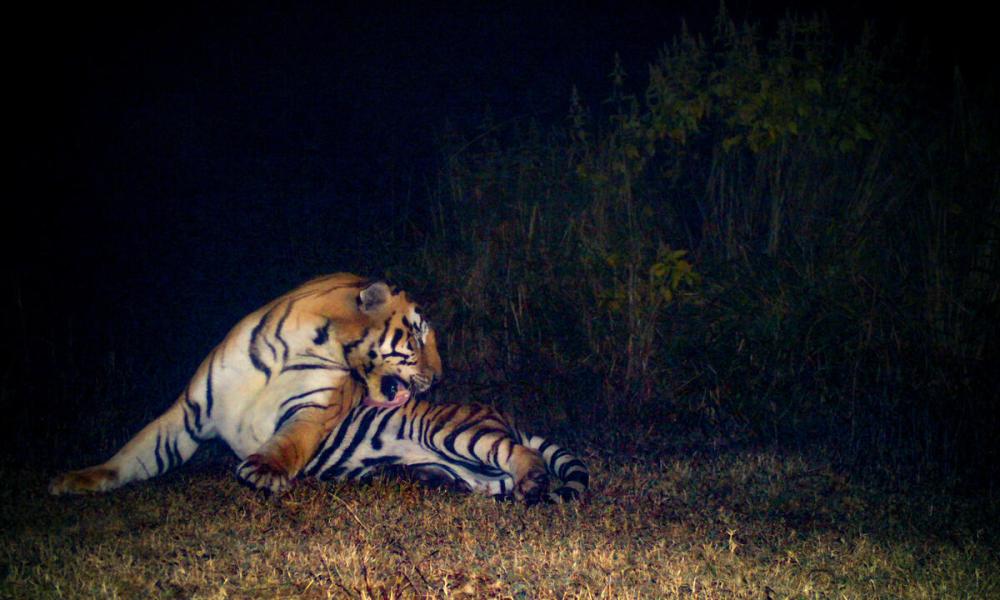
Issue - An iconic species in danger
Issue - An iconic species in danger
From a population of around 100,000 a century ago, global wild tiger numbers hit an all-time low of as few as 3,200 in 2010, with only 121 of the big cats estimated in Nepal.
Tigers have faced multiple pressures that continue to this day, including poaching for the illegal wildlife trade, habitat destruction and fragmentation through illegal logging, urbanisation and agricultural expansion.
Today, tigers are restricted to around 5% of their historic range and climate change poses a growing threat as extreme weather events can cause flooding or forest fires, and warming temperatures affect tiger habitats.
As their habitat changes, tigers are also pushed into closer contact with people, potentially leading to an increase in conflict between them, with fatalities on both sides.

Solution and result - A collaborative effort spells success
Solution and result - A collaborative effort spells success
In 2022 Nepal announced that it had more than doubled its number of wild tigers to an estimated 355 individuals according to the results of the national survey, which identified adult tigers based on their unique stripe patterns, similar to a human fingerprint.
Nepal was able to achieve this incredible increase through a collaboration between its government and partners including WWF, and by placing communities living in tiger landscapes at the heart of conservation efforts.
Initiatives included programmes such as using biogas (fuel from animal dung) to help replace household reliance on forest firewood, as well as community-based anti-poaching units to help drive down poaching.
In addition, forest restoration work helped to transform areas such as the Khata Forest Conservation Area from 115 hectares (about 161 football fields) in 2001 to a 3,800 hectare (about 5,322 football fields) thriving wildlife corridor and expanding tiger habitat.
By supporting WWF-UK, whether that’s through a tiger adoption or a one-off donation to our tiger appeals, you are helping to fund critical work in important tiger landscapes in India, Nepal and China.